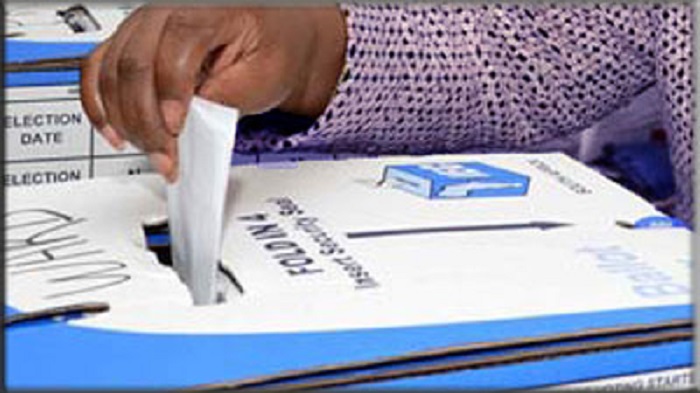While South Africans prepare for the 2016 local government elections, the political will of Muslim citizens has been called into question. As the political party campaigning starts to intensify, many Muslims feel disillusioned about the current political climate and more importantly, are concerned about choosing between political parties who all appear to contradict the moral compass of their faith.
Although South Africa has a thriving democracy, many people believe the country’s economic development is being hamstrung by inept and morally corrupt leaders. South Africa’s widely publicised political scandals – Nkandla, Guptagate and the Nene saga – have pushed the country’s economy into a downward spiral. But it is the rampant corruption, misadministration and lack of moral leadership at government level that has further angered South Africans.
Despite these concerns, Muslim scholars feel South African Muslims should use the power of their vote to exercise change at a political level. In the past few months, there have been renewed calls by members of the ulema to participate in the upcoming elections and to vote irrespective.
But the issue still poses a major dilemma for Muslim voters, with many asking the question: “What would the Prophet Muhammad (pbuh) do?”
Speaking to VOC, renowned Islamic scholar Shaykh Fakkrudien Owaisi said that the religion of Islam encourages Muslim communities to be involved in the political affairs of the country in which they reside.
He further noted that while some Muslims do show a sense of apathy and actively choose to not affect change within society, there is a growing trend of Muslims choosing to participate within the democracy.
Within a minority context such as South Africa, the Shaykh said that though no definite answer can be provided, we should base our political activity on the Sunnah and the actions of the present scholars of Islam within the country.
“The scholars in South Africa are involved in the political process and encourage the Muslim community to vote and participate in the political process,” Owaisi added.
How to choose a political party
Though no formal election process existed in the time of the Prophet Muhammad (may peace be upon him), he said that the Prophet often aligned himself with non-Muslim powers that were in favour of Islam and justice.
“An example of this is found in the time of the Prophet, before the advent of Islam, when visitors to Makkah were being raped, robbed and murdered. The Makkans formed an alliance, in which the prophet participate, called the Agreement of the Noblemen. The alliance made a pledge that it will protect any traveller that enters Makkah and punish the wrongdoers. Many years later after nubuwa, someone mentioned the pledge in front of the Prophet, the Nabi replied: ‘If I am called to join this alliance again, I will because it was a noble alliance,” Owaisi explained.
He said that despite the alliance being one convened by non-Muslims, the Nabi (pbuh) joined the alliance since it spoke to the upliftment of society.
“This event indicates that it does not matter from what religion a group of people are, if they are coming together to do something good, then as Muslims it is our duty to support them and join them,” he continued.
Owaisi further noted that if you are convinced that your political party of choice encourages the improvement of society and promotes good work, then it is a sunah to vote for that party.
“And if you feel that a certain party is not serving your country or your deen (religion), then it becomes haram (forbidden) for you to vote for that party.”
He said that in the Treaty of Hudaibiya, in Madina with the Jews, and with the Christians of Najran, the Nabi formed pacts, which were for the benefit of both parties.
These events, therefore, indicates that the sunah does not encourage Muslims to live in isolation from the rest of society.
‘All parties are corrupt’
As many South Africans have voiced concern about the ineffectiveness of the political parties within the country, Owaisi explained that as Muslims we are encouraged to choose parties who we believe to be less corrupt and more humane.
“In the time of the Nabi, there was a war between the Romans and the Persians. The kuffaar (non-believers) supported the Persians since they were idol worshippers, whilst the Muslims supported the Romans who were Ahlul Kitaab (People of the Book). When the Persians won the battle, the Almighty revealed to the Prophet the verse: “Indeed the Romans have been defeated, but soon the Romans will defeat the Persians and the believers will be happy. And indeed the prediction came true; the Romans defeated the Persians and the Muslims celebrated,” Owaisi continued.
Muslims should learn from the country’s history, where South Africans of all religions and political affiliations celebrated the 1994 electoral win of the African National Congress.
Just as the 1994 victory was not viewed as a religious matter, but instead reflected the victory of justice against injustice, the Shaykh urged Muslims to participate in the political process and affect positive change.
“As Muslims we are to be involved in the system and the country, otherwise we will have no right to complain about what’s happening in the country, if we are not part of the process…Allah supports the just ruler even if he is a non-Muslim and Allah humiliates the unjust ruler even he is a Muslim,” Owaisi continued.
VOC






 WhatsApp us
WhatsApp us 

